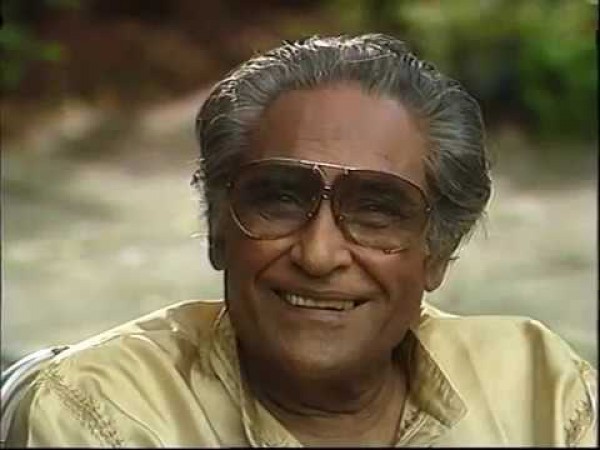
Over the years, countless actors have seen their careers rise and fall in Bollywood, the biggest film industry in the world. One name stands out among them as a shining example of endurance, adaptability, and excellence. It's Ashok Kumar, by the way. With the release of "Jeevan Naiya" in 1936, Ashok Kumar made his screen debut. From that point on, he would go on to carve an unmatched path in the history of Indian cinema, securing his status as a genuine legend. With a career that lasted an astounding 63 years, he left his mark on both critics and moviegoers alike, leaving behind a lasting legacy.
Ashok Kumar had a modest beginning. He was born Kumudlal Ganguly on October 13, 1911, in Bhagalpur, Bihar. He initially pursued a legal career, but fate had other plans for him. Ashok Kumar entered the acting industry with the support of his famous actor brother Kishore Kumar. His first movie, "Jeevan Naiya," was released in 1936, and it was the start of an extraordinary journey that would last for more than six decades.
The first movie was just the beginning of Ashok Kumar's path to fame in the movie industry. With outstanding performances in a number of movies, including "Achhut Kanya" (1936), "Kismet" (1943), and "Mahal" (1949), he quickly established his mettle. His adaptability allowed him to move between intense dramas and lighthearted comedies with ease, showcasing his impressive acting range.
But Ashok Kumar gained iconic status thanks to his performance as Devdas in the 1955 film masterpiece by Bimal Roy. He made an indelible impression on Indian cinema with his nuanced portrayal of the tortured lover. He kept astonishing audiences with his acting talent over the years in movies like "Chalti Ka Naam Gaadi" (1958), "Mili" (1975), and "Victoria No. 203" (1972).
With a record-breaking accomplishment—the longest Bollywood career in lead roles—Ashok Kumar's incredible journey culminated. He stayed in the role of the leading man for an incredible 63 years, a feat that still stands as evidence of his talent and enduring appeal. As he continued to change and adapt to the times, his commitment to and passion for acting remained unwavering.
Beyond his accomplishments in film, Ashok Kumar had an impact off the screen as well. Awards like the Dadasaheb Phalke Award, the highest honor in Indian cinema, given in 1988, properly recognized his contribution to the film industry. In 1999, he was also given the Padma Bhushan, the third-highest civilian honor in India. These accolades honored his priceless contributions to society and the arts.
The story of Ashok Kumar's rise from "Jeevan Naiya" to leading Bollywood's longest lead career is one of unwavering resolve, unmatched talent, and enduring charisma. As a reminder of the magic that happens when genuine passion meets artistic excellence, his performances continue to inspire actors and filmmakers. As we commemorate Ashok Kumar's legacy, we are reminded of how his outstanding contributions have permanently inscribed his name in the illustrious past of Indian cinema.
Independence Day 2023: US Legislators Set to Attend PM Modi's Address at Red Fort
From Sensation to Sensation: Decoding the Controversial Impact of Choli Ke Peeche
From Star Power to Empowerment: Hrithik Roshan's Unique Gesture of Friendship